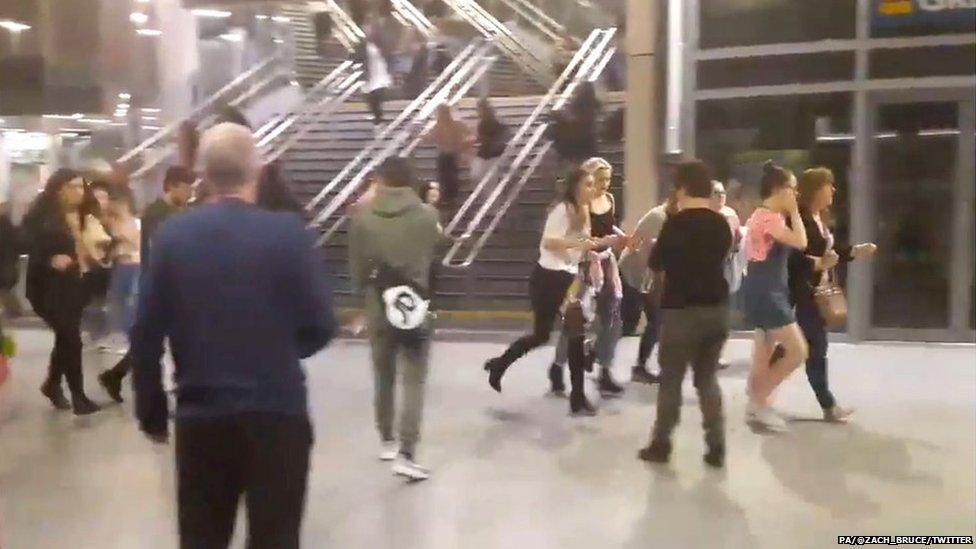Manchester attack: Welsh witnesses tell of blast chaos
- Published
Welsh eyewitnesses at the concert tell of moment bomb went off
Eyewitnesses have described their shock after a suicide bomber killed 22 people and injured 59, including children at the Manchester Arena.
The blast happened at the end of a pop concert by the US singer Ariana Grande.
Police named the suspected bomber as Salman Abedi, 22, and arrested a 23-year-old man while the UK terror threat level has been raised to "critical".
A woman from the Llyn Peninsula in Gwynedd is among those being treated in hospital in Manchester.
She had travelled to the concert with her daughter and one of her daughter's friends but details of her injuries are unknown.
Welsh opera singer Sioned Terry said she saw people covered in blood outside the arena
Elsewhere, Conwy councillor Ronnie Hughes thanked people for their support after his daughter Sarah suffered minor injuries.
He said they were "so lucky" they "got out and home safely", adding it would take "a long time to come to terms with what they had witnessed".
Three victims have been named so far, including eight-year-old Saffie Rose Roussos, and police have set up an emergency telephone number in response to the attack: 0161 856 9400.
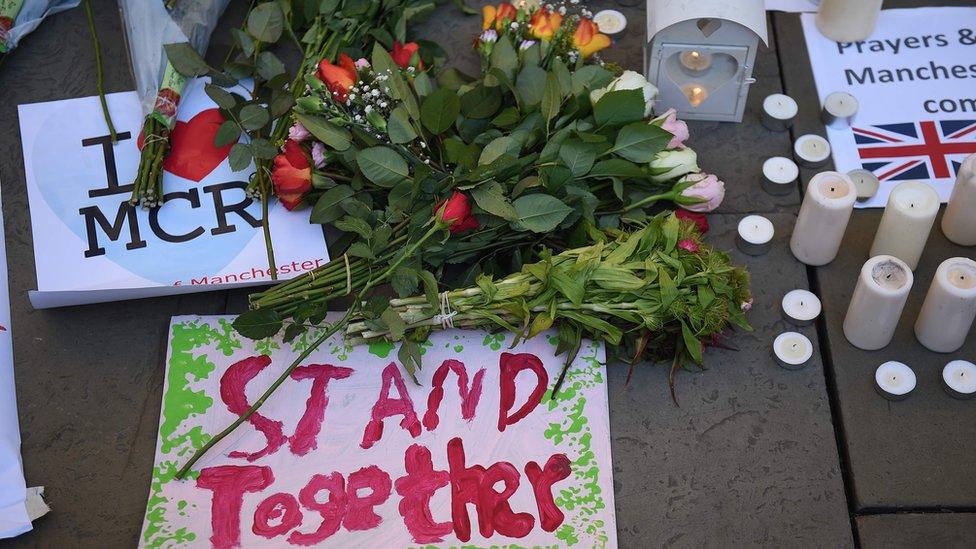
Greater Manchester Police said the lone male suicide bomber, who died in the blast, was carrying an improvised explosive device which he detonated.
Political parties in Wales suspended general election campaigning on Tuesday, which has been extended to Wednesday.
Relatives have been using social media to hunt for missing loved ones.
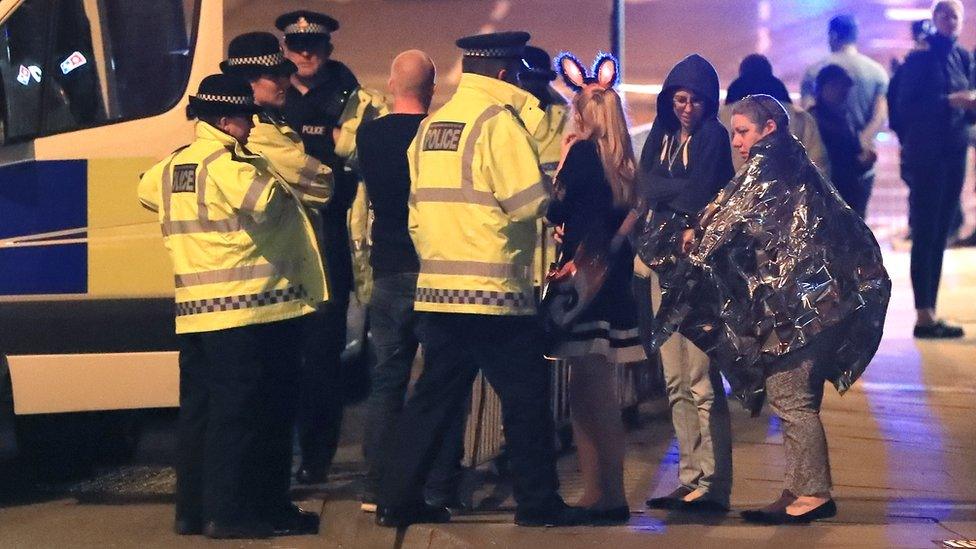
Vicky Pickavance from Bangor, Gwynedd, who was at the concert with her daughter, Sadie, 12, described a "massive bang" and then chaos.
"By the time I turned my head it was literally like a scatter of ants or something. All these children running down and screaming down the stands," she said.
"My daughter was panicking. I said: 'Let's get out of here'. So I jumped some seats and pulled her down.
"And when we came around the corner I turned and saw massive plumes of smoke coming towards us. So I grabbed my daughter as tight as I could and there were stewards shouting 'this way, this way'.
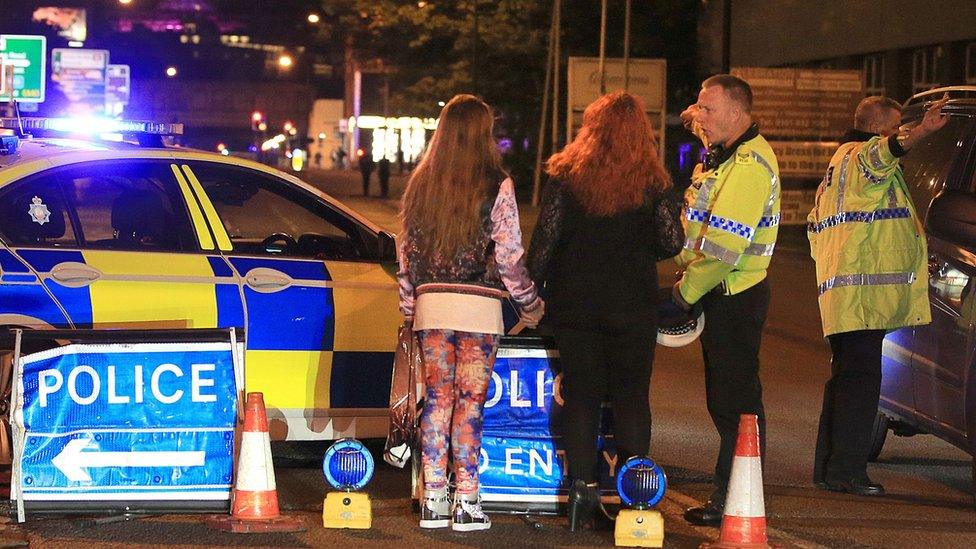
"There was screaming crowds everywhere, screaming kids everywhere, like something you'd see on TV, out of a movie, not reality."
The explosion occurred shortly after Ariana Grande left the stage at the arena - Manchester's largest indoor venue with a concert capacity of 21,000.
Sian Williams, 17, from Wrexham, was leaving the concert with a friend when the blast happened.
She said: "We were going towards the back when I heard a loud explosion, everyone thought it was a balloon as there were balloons released at the end, but then everyone was screaming and running away from a certain door. I was scared. I didn't know what to do."
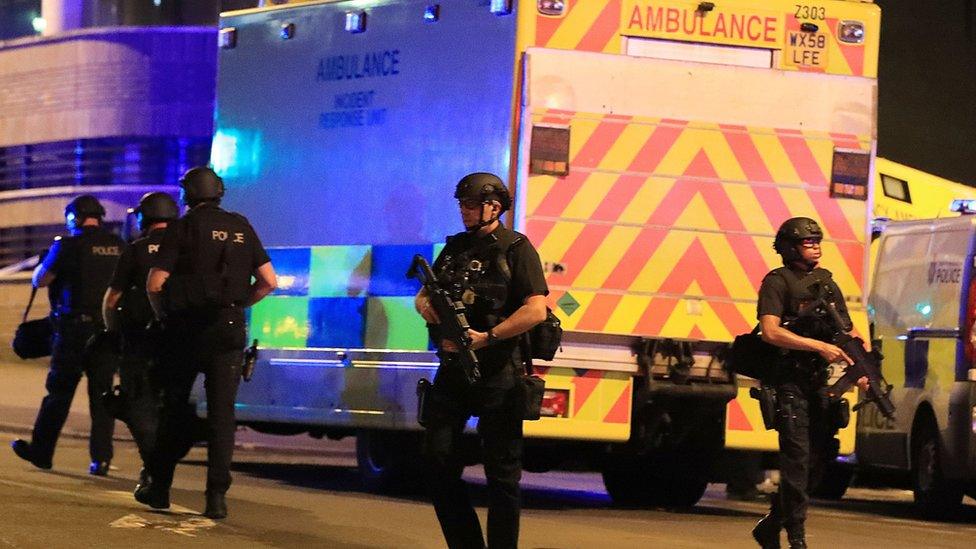
Armed officers rushed to the scene on Monday night
Vanessa Brown, from Buckley, Flintshire, was picking up her nephew, Benjamin, 18, and 12-year-old daughter Emily from the concert when she helped an injured girl.
She said: "I had gone shopping while they went to the concert and was waiting to pick them up in my car. It was just like a big bang, like there were fireworks.
"My nephew and my daughter came around the corner and were distraught. They had been on the front steps of the arena close to where it happened.
"I saw a girl who had hurt her leg and tried to help her, but when I phoned the ambulance they were just too busy to answer the call to begin with.
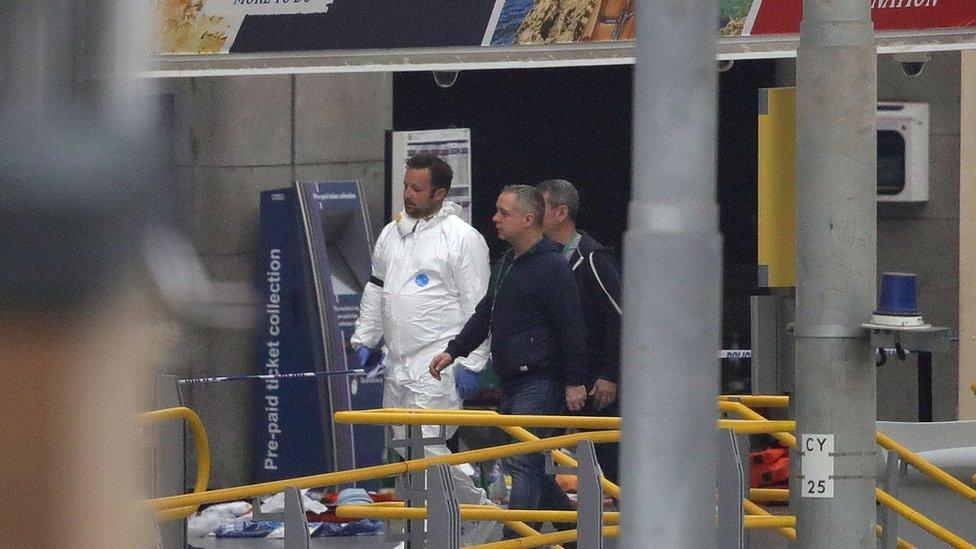
"Then a police officer came and to help and tried to get a paramedic but they asked if it was life-threatening, but when he said no they just passed us. In the end she was taken to a triage centre at a nearby police station."
Andy Birch, from Colwyn Bay in Conwy county, was in the car park with his wife Fran, when they heard the explosion and they immediately tried to get hold of their two daughters, aged 15 and 18, who had gone to the concert.
"It was a huge bang, it vibrated in the car - there were alarms and sirens going off and we knew it was serious," he said.
The couple eventually found their daughters in the middle of the road outside the arena.
Flintshire teacher caught up in Manchester terror attack
"We were just so glad to be reunited with our girls, but it's just been heartbreaking seeing families not knowing where their other family members are," Mr Birch added.
Assistant Chief Constable Richard Debicki from North Wales Police said the force was providing "mutual aid" to colleagues and "will continue to do so as the investigation unfolds".
Vigils have been held in Swansea, Cardiff Bay and Pontypridd.
Difficult to imagine an act more appalling and more senseless, says Carwyn Jones
First Minister Carwyn Jones said Wales stood in solidarity with the people of Manchester and would "continue to monitor events".
Earlier, Mr Jones told First Minister's Questions that security arrangements for the forthcoming Champions League Final at Cardiff's Principality Stadium on 3 June are "robust".
Following the raised terror threat level, he tweeted: "I urge everyone to remain vigilant - everything is being done to keep the country safe."
Assistant chief constable Richard Lewis says police visibility will increase
Raising the UK terror threat to the highest level of "critical", means further attacks may be imminent.
Prime Minister Theresa May said the move came after investigators were unable to rule out Abedi acted alone.
Military personnel would now be deployed to protect key sites which could include sporting events.
Speaking before the terror threat was raised, Assistant Chief Constable Richard Lewis of South Wales Police said their plans for policing the Champions League final, which will see 170,000 football fans descend on Cardiff, have not changed in the aftermath of the attack.
Cardiff is also hosting the women's Champions League final on 1 June and a Champions Festival from 1-4 June in Cardiff Bay, with two hospitality villages in Bute Park and at Cardiff Castle.
ACC Lewis said there would be "no knee-jerk reaction".
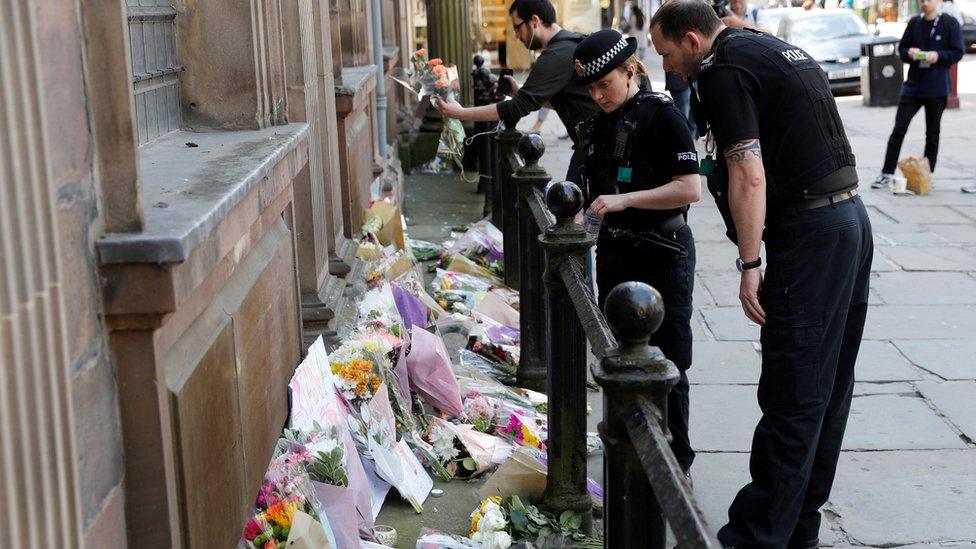
"Our approach to policing this major sporting event is intelligence-led and risk-based, which gives us the flexibility to respond to any changes."
He said although there was "no specific threat" to the region the public were urged to be "extra vigilant".
On Champions League event days, he said access to areas around the stadiums will be "extremely limited" and ticket-holders can expect to be subject "rigorous security checks."
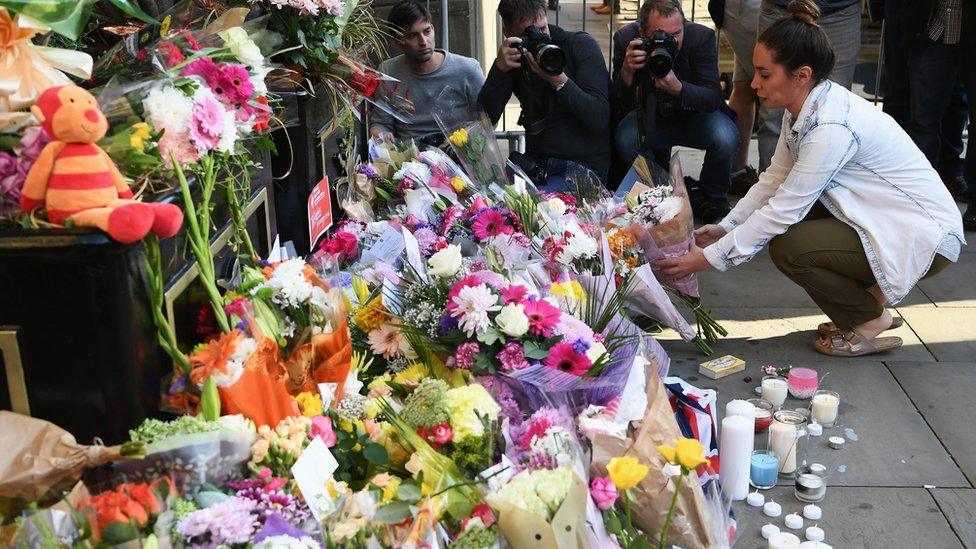
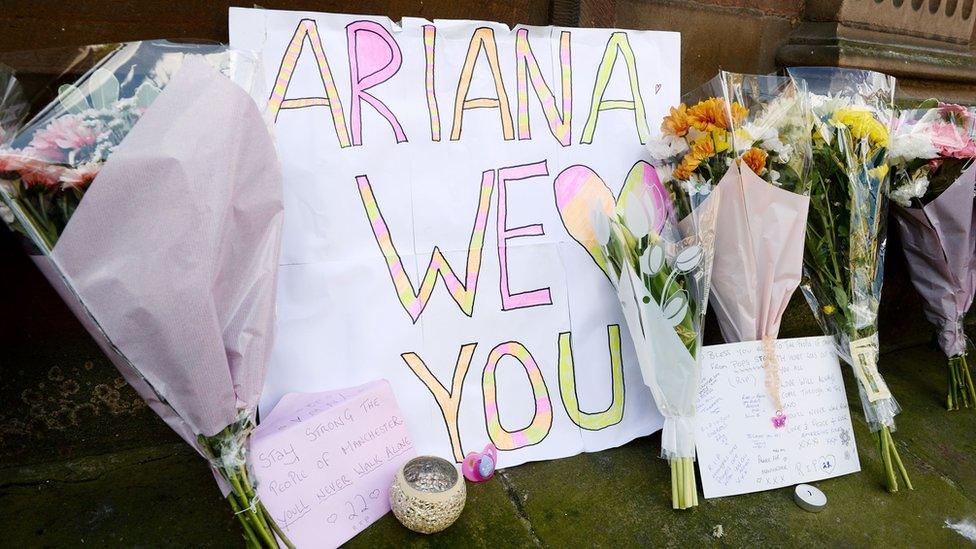
- Published23 May 2017
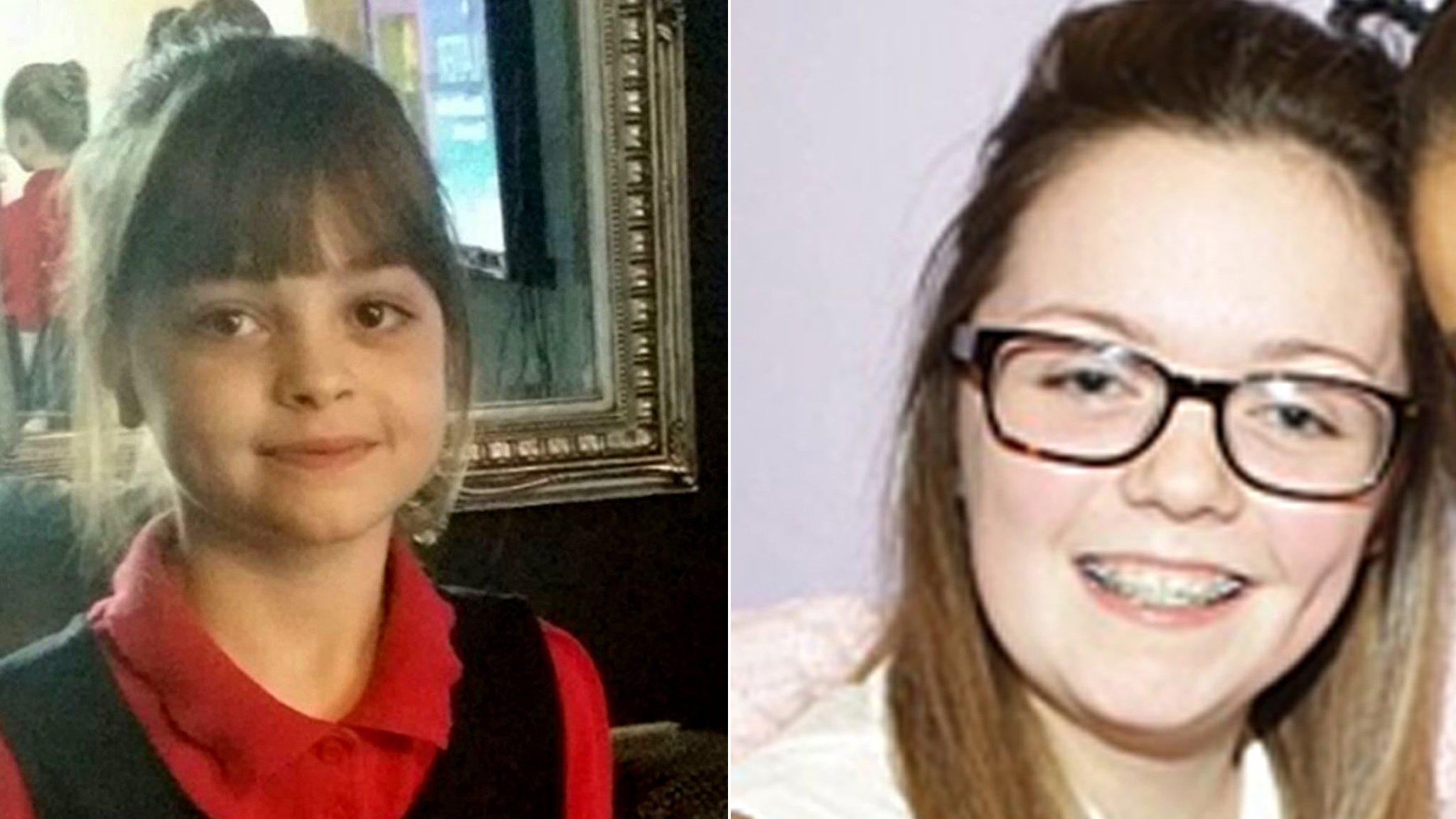
- Published22 May 2017
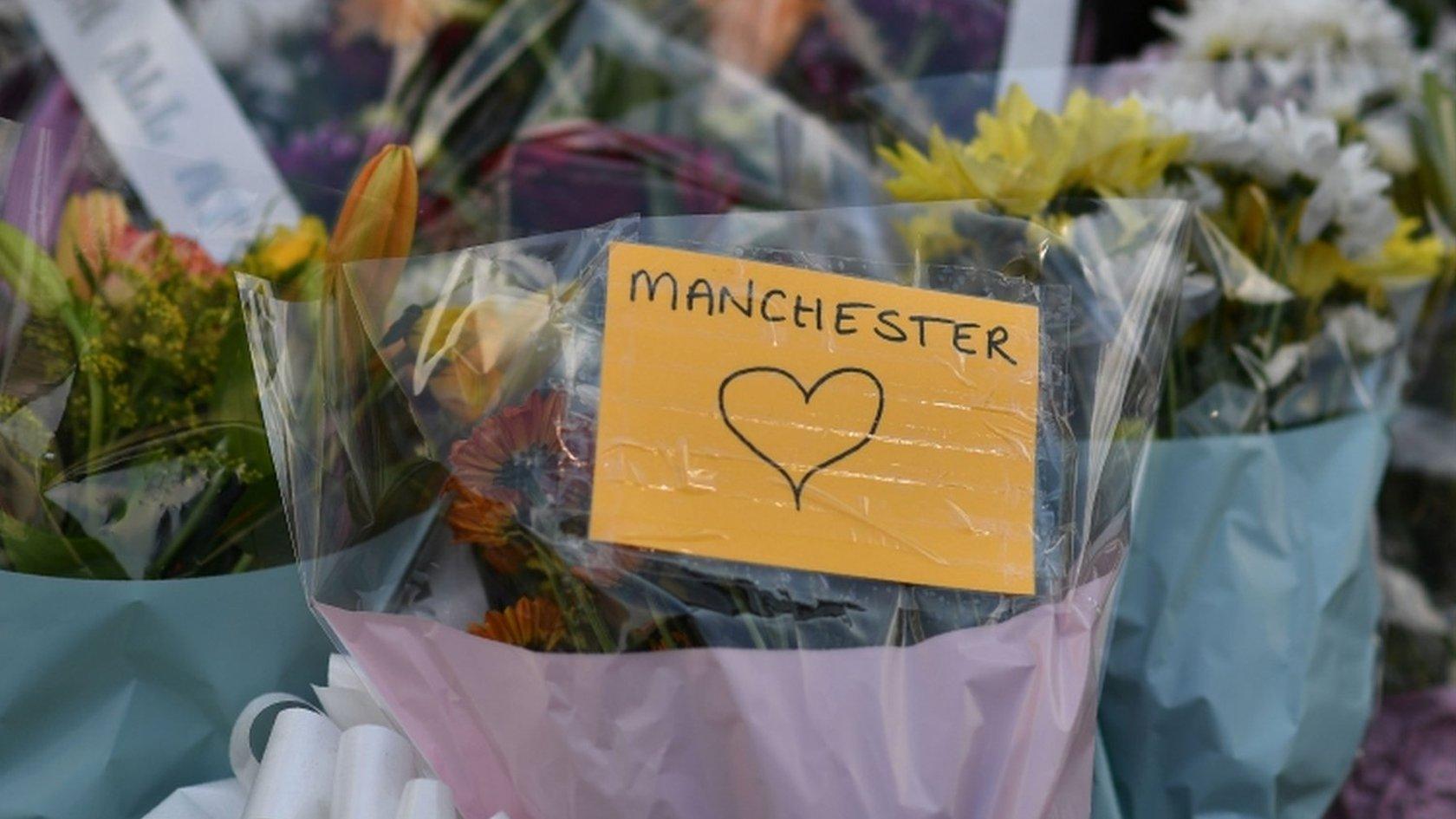
- Published23 May 2017
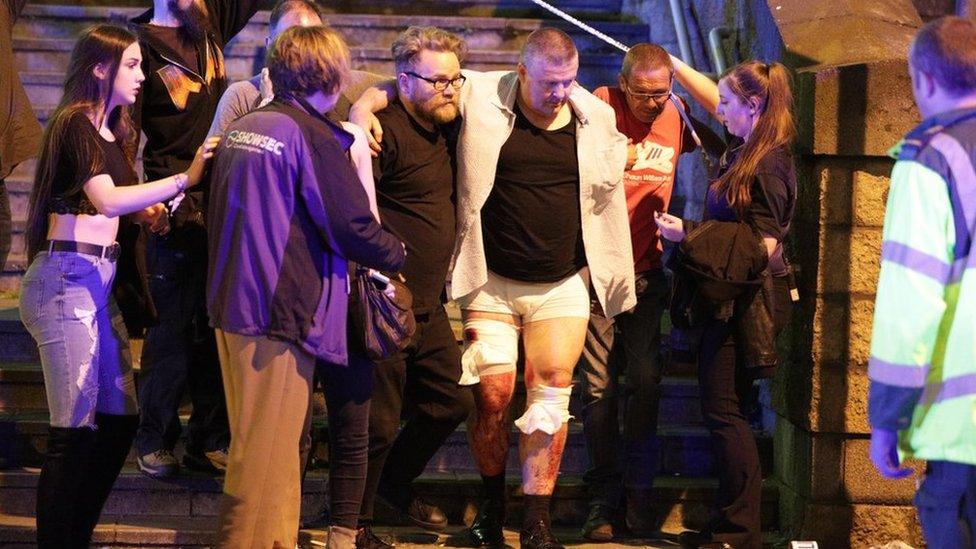
- Published23 May 2017
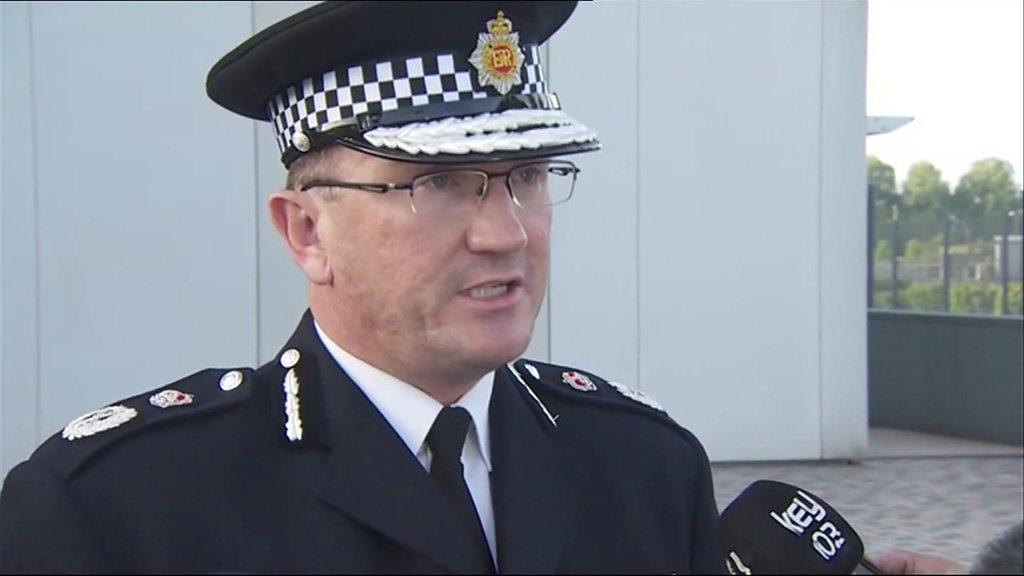
- Published23 May 2017
